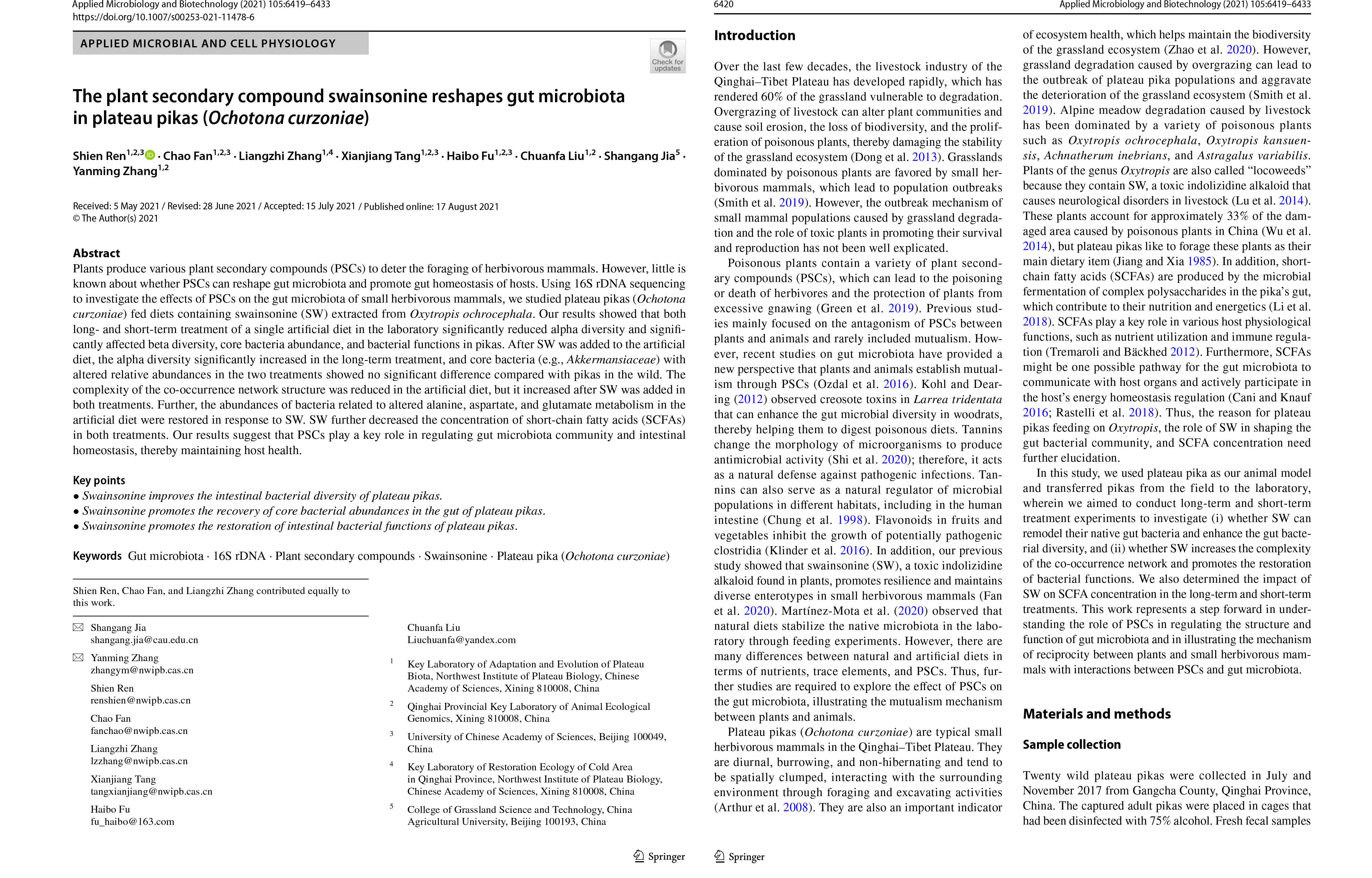The plant secondary compound swainsonine reshapes gut microbiota in plateau pikas (Ochotona curzoniae)
Author:Shien Ren,Chao Fan,Liangzhi Zhang,Xianjiang Tang,Haibo Fu,Chuanfa Liu,Shangang Jia,Yanming Zhang.
Abstract:Plants produce various plant secondary compounds (PSCs) to deter the foraging of herbivorous mammals. However, little is known about whether PSCs can reshape gut microbiota and promote gut homeostasis of hosts. Using 16S rDNA sequencing to investigate the efects of PSCs on the gut microbiota of small herbivorous mammals, we studied plateau pikas (Ochotona curzoniae) fed diets containing swainsonine (SW) extracted from Oxytropis ochrocephala. Our results showed that both long- and short-term treatment of a single artifcial diet in the laboratory signifcantly reduced alpha diversity and signifcantly afected beta diversity, core bacteria abundance, and bacterial functions in pikas. After SW was added to the artifcial diet, the alpha diversity signifcantly increased in the long-term treatment, and core bacteria (e.g., Akkermansiaceae) with altered relative abundances in the two treatments showed no signifcant diference compared with pikas in the wild. The complexity of the co-occurrence network structure was reduced in the artifcial diet, but it increased after SW was added in both treatments. Further, the abundances of bacteria related to altered alanine, aspartate, and glutamate metabolism in the artifcial diet were restored in response to SW. SW further decreased the concentration of short-chain fatty acids (SCFAs) in both treatments. Our results suggest that PSCs play a key role in regulating gut microbiota community and intestinal homeostasis, thereby maintaining host health.




 青公网安备 63010402000197号
青公网安备 63010402000197号